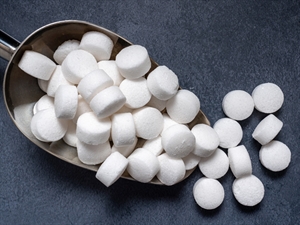Water softening is a crucial process for both residential and industrial applications. Hard water, which contains high levels of calcium and magnesium, can cause scale buildup in pipes, appliances, and industrial equipment, leading to reduced efficiency and lifespan. Salt plays a pivotal role in the water softening process, with salt tablets being the preferred choice for many users.
How Does Water Softening Work?
The water softening process involves replacing calcium and magnesium ions in hard water with sodium ions, which are less likely to cause scale buildup. This exchange of ions occurs within a water softener unit that contains resin beads charged with sodium ions. As hard water flows through, the calcium and magnesium ions are attracted to the beads, and sodium ions are released into the water. Here’s a breakdown of the process:
Ion Exchange Process
Resin Beads: The water softener contains a bed of resin beads coated with sodium ions. These beads attract positively charged ions, such as calcium (Ca²⁺) and magnesium (Mg²⁺), found in hard water.
Exchange: As hard water passes through the resin bed, calcium and magnesium ions bind to the resin beads, displacing the sodium ions, which are then released into the water.
Result: The water that exits the softener is "softened," containing sodium ions instead of calcium and magnesium ions.
Where Do the Calcium and Magnesium Ions Go?
Over time, the resin beads become saturated with calcium and magnesium ions, reducing their ability to soften water. At this point, the regeneration process is required.
Regeneration Process:
- During regeneration, a brine solution (a concentrated saltwater solution) is flushed through the resin bed.
- The high concentration of sodium ions in the brine displaces the calcium and magnesium ions from the resin beads.
- These displaced ions are then flushed out of the system and directed into the wastewater drain.
Why Salt Tablets Are Essential
Salt tablets are compact, high-purity sodium chloride, specifically designed for use in water softeners to regenerate resin beads effectively. Their key advantages include:
Efficient Dissolution: Salt tablets dissolve evenly and slowly, providing a steady supply of sodium ions for the regeneration process. This helps maintain water softener efficiency and prevents issues like salt bridging, where a hard crust forms in the brine tank.
Ease of Use: Their compact form makes salt tablets easy to handle, store, and load into the brine tank, compared to loose salt or large salt blocks.
Purity and Consistency: High-quality salt tablets meet the requirements of EN973, ensuring they are suitable for treating water intended for human consumption and free from impurities that could clog the water softener or reduce its effectiveness.
Cost-Effective: Salt tablets are economical, especially when purchased in bulk. They require less frequent replenishment, reducing the overall maintenance cost of the water softening system.
Applications of Salt Tablets in Water Softening
In industrial settings, water softening is critical for maintaining the efficiency of boilers, cooling towers, and other water-dependent equipment. Using salt tablets helps prevent costly maintenance and downtime due to scale-related issues. Industries such as food and beverage, pharmaceuticals, and manufacturing rely heavily on water softeners to ensure product quality and consistency.
Salt Tablets and Water Softening FAQs




